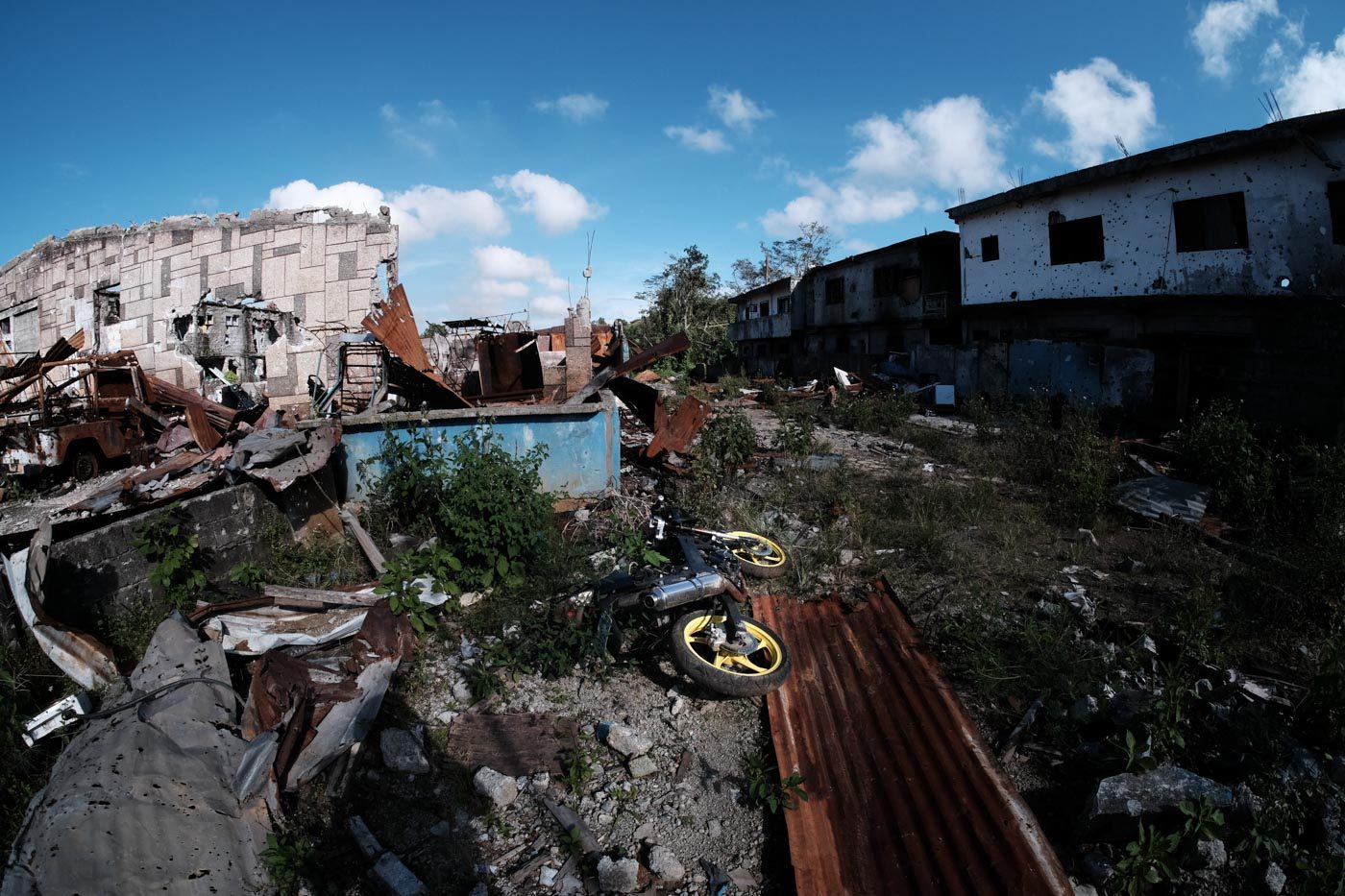SUMMARY
This is AI generated summarization, which may have errors. For context, always refer to the full article.

MANILA, Philippines – Another member of the Maute terror group was convicted over the 2017 Marawi siege, this time for rebellion and crimes against humanity.
Junaid Macauyag Awal was found guilty of rebellion under Article 134 of the Revised Penal Code, and for violating Republic Act (RA) No. 9851 or the Philippine Act on Crimes against International Humanitarian Law, Genocide, and other Crimes Against Humanity after witnesses pointed to him as one of those who held Christians hostage in Marawi City during the war.
Awal was sentenced to up to 40 years imprisonment, and was ordered to pay a fine of P500,000 in a decision issued by Taguig City Regional Trial Court Branch 70 Judge Felix Reyes on Friday, March 15.
This is the second time that Reyes has convicted an individual linked to the Maute terror group. In November 2018, Reyes convicted Nur Supian of terrorism under RA 9732 or the Human Security Act.
Hostage
The prosecution was able to present 3 witnesses who were taken hostage by Awal and other members of Maute during the Marawi siege, including a Christian woman who cllaimed she was forced into being a sabaya, or the term for a captive woman.
The defense presented Awal’s wife and father who claimed he was also a captive.
The court gave more weight to the prosecution witnesses who said they saw Awal exchange fires with government troops. The Christian woman also said she was taken to the frontline of the war so she could take care of Awal.
“Their testimonies taken together with other circumstances presented in court sufficiently establishes an unbroken chain which leads to one fair and reasonable conclusion: accused Junaid Macauyag Awal, together with other unidentified companions, mutually helped and assisted one another in committing the crime of rebellion,” the court said.
The court said that Awal’s bare denials were “inherently weak.”
“The alibi of the accused that he was abducted by the Maute group and was held as a hostage is inherently a weak defense. More so that he admitted that he possessed firearms during the actual siege. It was conveniently made as an excuse by the accused and his witnesses to exculpate him from criminal liability, to which, this court cannot countenance,” the court also said. – Rappler.com
Add a comment
How does this make you feel?
There are no comments yet. Add your comment to start the conversation.